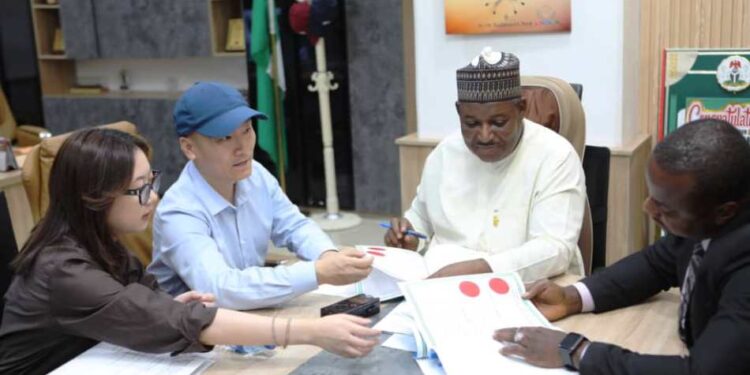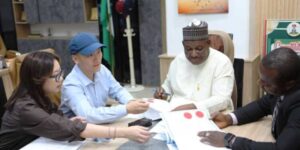
Nigeria signs MoU with China to enhance technical and vocational education
- Education
- No Comment
- 223

The Nigerian government has signed a strategic Memorandum of Understanding (MoU) with China to strengthen Technical and Vocational Education and Training (TVET) in the country.
The partnership is to equip Nigerians with hands-on skills, enhance technical education, and improve the implementation of vocational training nationwide.
The agreement was signed during an event attended by the Minister of Education, Dr. Maruf Alausa, who was represented by the Permanent Secretary, Dr. Nasir Sani-Gwarzo on Tuesday, 18th of March, 2025.
Dr. Sani-Gwarzo highlighted the significance of the agreement, stating that it will enhance Nigeria’s technical capacity and ensure the practical application of knowledge.
“This collaboration will significantly enhance Nigeria’s technical capacity, ensuring that knowledge gained is effectively applied.
“From what I have observed in China, I believe that whatever we sign today is just the beginning of a long-term relationship,” he said.
Nature of the agreement
Sani-Gwarzo explained that while the document is not legally binding, it is technically binding in terms of partnership and mutual support.
He emphasized that the agreement is designed to be flexible and allow for expansion.
“We will work together based on this understanding, and what makes this document unique is that it allows room for future expansion in scope, improvement in depth, and enhancement in the quality of our collaboration. It is a very flexible document.
“Although it does not have legal implications that would require court settlements, it ensures that any disputes will be resolved through dialogue. It also provides the opportunity to bring in other stakeholders.
“If we wish for you to collaborate with our agencies, we can facilitate that through this agreement. If we want you to work with the states, we can also introduce them through this. Furthermore, if we decide to expand beyond specific aspects of technical education (which is at the core of this partnership), we have the liberty to explore other dimensions within the agreed context,” he stated.
Why China?
Sani-Gwarzo stressed that partnering with China is a strategic move, given its rapid advancements in education and technology.




